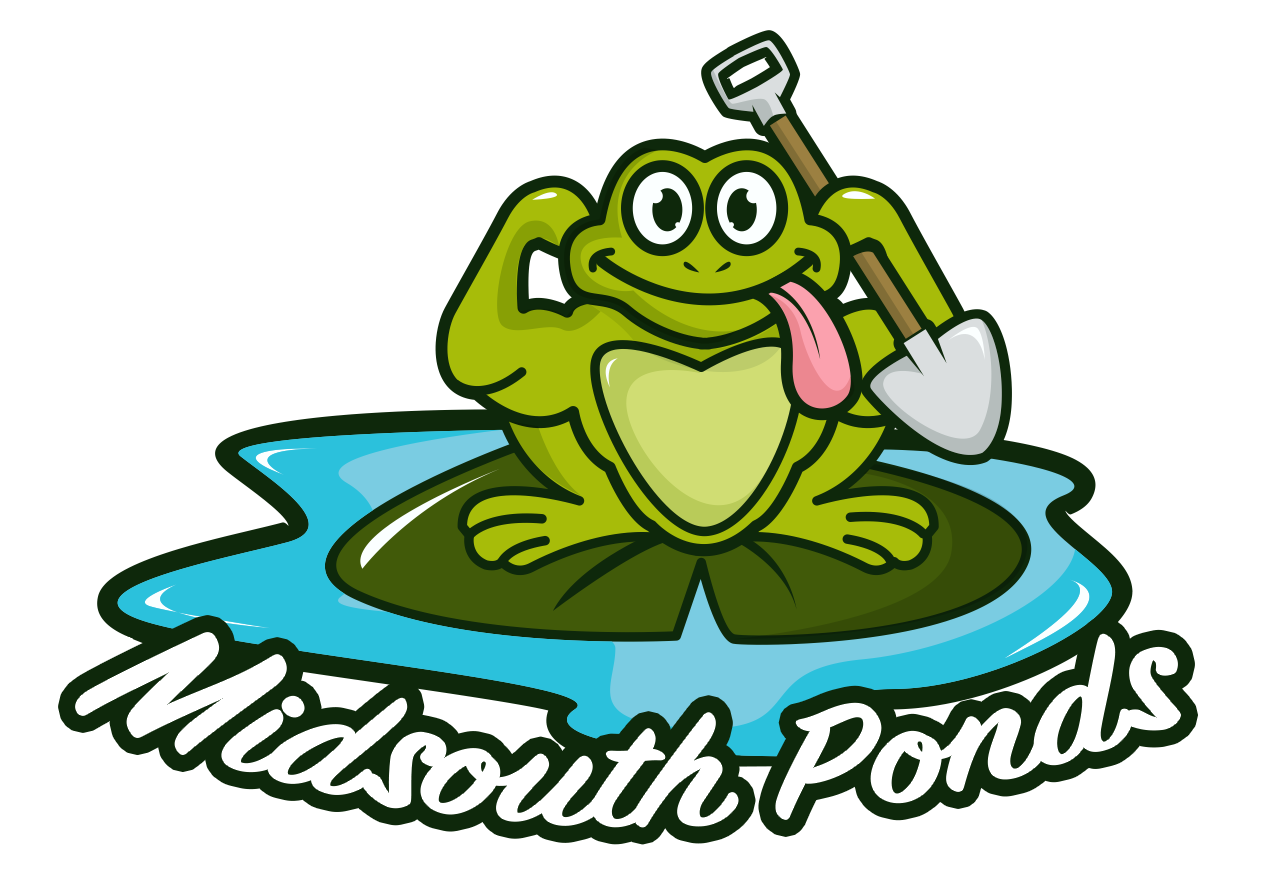Many pond owners in Memphis cherish the beauty and tranquility their water gardens bring to their lives, but proper maintenance is key to keeping them pristine. With Midsouth Ponds as the only certified Aquascape Contractor in town, you can trust them to keep your pond or water feature in top condition. Regular care to prevent debris and leaf accumulation will ensure your water remains crystal clear and your plants and fish thrive. Let Midsouth Ponds take care of the maintenance so you can relax and enjoy your own personal sanctuary all year long.
Key Takeaways:
- Regular Maintenance: Ensure the health and beauty of your Memphis water garden by staying on top of debris and leaf accumulation.
- Professional Assistance: Trust Midsouth Ponds, the only certified Aquascape Contractor in Memphis, for expert care of your pond or water feature.
- Enjoy Your Oasis: By entrusting your water garden to Midsouth Ponds, you can relax and unwind in your own sanctuary without worrying about maintenance.
Understanding Seasonal Changes and Their Impact on Your Water Garden
A
Factors Affecting Water Quality and Plant Life
- Debris and leaf accumulation can make your water green, endangering plants and fish.
- Maintaining your water garden’s cleanliness ensures a visually beautiful and healthy environment for your plants and fish.
Perceiving the impact of seasonal changes on your water garden is necessary for its longevity and beauty.
How Temperature Fluctuations Affect Aquatic Ecosystems
| Water Temperature | Impact |
| Warm | Encourages algae growth |
| Cold | Slows down biological processes |
An understanding of how temperature fluctuations affect aquatic ecosystems is crucial for maintaining the health of your water garden. Fluctuations in water temperature can impact the overall balance and well-being of your pond, affecting plant growth and the health of your fish.
| Fluctuations | Effects |
| Temperature | Affects plant and fish health |
| Biological Processes | Influences ecosystem balance |
Spring Maintenance and Preparation
Tips for Cleaning and Refurbishing Your Water Garden
Any debris and leaf accumulation from winter may have made your pond water green and unhealthy. Now is the perfect time to clean and refurbish your water garden. Start by removing any debris, trimming back overgrown plants, and checking the health of your fish. Consider adding new plants or rearranging existing ones to give your pond a fresh look.
- Remove debris and leaves from the pond
- Trim back overgrown plants
- Check the health of your fish
After cleaning and refurbishing your water garden, you’ll notice a significant improvement in the water quality and overall appearance of your pond. Your plants and fish will thank you for the fresh start this spring.
How to Revive Dormant Plants and Introduce New Ones
One of the joys of spring is seeing your dormant plants come back to life. Now is the time to revive them by providing proper care and nutrients. Consider introducing new plants to add variety and color to your water garden. Research the best plants for your specific type of pond and climate to ensure they thrive throughout the season.
Factors to Consider When Replenishing Water and Chemicals
Spring is the perfect time to replenish your pond’s water and chemicals. As temperatures rise, your pond will need more water to account for evaporation. Test the water quality and adjust the pH levels if necessary. Consider using natural additives to promote a healthy ecosystem in your water garden. Additionally, check the levels of beneficial bacteria to maintain a balanced environment.
- Test and adjust water pH levels
- Add natural additives for a healthy ecosystem
- Maintain levels of beneficial bacteria
With proper water replenishment and chemical maintenance, your pond will stay balanced and thriving throughout the spring season. Regular monitoring and care will ensure that your water garden remains a serene and beautiful sanctuary for you and your family to enjoy.
Summer Care and Management
How to Monitor and Control Algae Growth
Keep a close eye on your pond during the summer months to ensure algae growth is kept in check. Algae can quickly take over, turning your water green and potentially harming your plants and fish. Regularly check for any signs of excessive algae and debris accumulation, and consider adding beneficial bacteria or algae control products to maintain a healthy balance in your pond.
Tips for Maintaining Optimal Water Temperature and Quality
On hot summer days, it’s important to monitor and maintain the water temperature in your pond to ensure the health of your aquatic life. Consider adding shade elements such as water lilies or floating plants to help regulate temperature and prevent overheating. Regularly test the water quality and adjust as needed to keep your pond ecosystem thriving.
You:
A consistent water temperature and quality are crucial for the overall well-being of your fish and plants. By maintaining optimal conditions, you can enjoy a flourishing and balanced ecosystem in your water garden.
- Monitor water temperature regularly to prevent fluctuations
- Test water quality for pH, ammonia, and nitrate levels
Factors to Consider When Introducing Fish and Other Aquatic Life
A key aspect of summer pond care is introducing fish and other aquatic life to your pond. Before adding any new inhabitants, consider factors such as the size of your pond, the compatibility of different species, and the overall balance of your pond ecosystem. Properly acclimate new fish to their environment to minimize stress and ensure a smooth transition.
Maintaining a balanced ecosystem is vital for the health and well-being of your aquatic life. Recognizing the different needs of your fish and plants will help you create a harmonious environment where all can thrive together.
- Consider the size and species of fish suitable for your pond
- Monitor water quality and oxygen levels for optimal fish health
Autumn Preparations and Winterization
How to Prepare Your Water Garden for Cooler Temperatures
For a successful winterization process, it is crucial to prepare your water garden for the upcoming cooler temperatures. Here is a breakdown of what you need to do:
| Clean Up Debris | Remove Plants |
| Remove any fallen leaves or debris that could affect the water quality and oxygen levels in your pond. | Consider removing sensitive plants from the pond and transferring them indoors or to a warmer location. |
Tips for Protecting Plants and Fish from Frost and Freezing
An important aspect of winterizing your water garden is protecting your plants and fish from frost and freezing conditions. Here are some tips to help you with this:
- Use a pond heater or aerator to keep the water temperature stable and prevent it from freezing.
- Cover your pond with a net or floating plants to prevent leaves from falling in and decomposing, which could harm your fish.
Perceiving these precautions will help ensure that your plants and fish stay healthy throughout the colder months.
Factors to Consider When Draining and Storing Equipment
Cooler temperatures also mean you need to consider draining and storing your equipment properly to avoid damage. Here are some factors to keep in mind:
- Check any pumps or filters and drain them to prevent ice damage during the winter.
Any equipment left outdoors should be stored in a dry and sheltered location to protect it from freezing temperatures.
Winter Maintenance and Care
How to Maintain Water Quality During the Cold Season
Once again, winter is approaching, and it’s time to ensure your water garden stays in top condition even in the colder months. Little maintenance tasks can go a long way in keeping your pond healthy during winter. Make sure to regularly remove any debris or fallen leaves to prevent water quality issues and ensure the well-being of your plants and fish.
Tips for Protecting Your Water Garden from Extreme Weather Conditions
Seasonal changes, especially extreme weather conditions, can pose challenges for your water garden. To protect your pond during harsh winter days or sudden temperature drops, consider investing in a pond heater to prevent freezing water. Covering your pond with a net or pond cover can also help protect it from debris and falling leaves that might impact water quality and overall pond health. Though it might require some extra effort, these precautions can make a big difference in maintaining your water feature’s beauty and functionality.
- Thou should also regularly check for any leaks or damages to your pond liner to ensure its longevity and prevent water loss.
Factors to Consider When Planning for the Next Growing Season
Protecting your pond during winter not only ensures its well-being in the current season but also sets the groundwork for a successful next growing season. One important factor to consider is the balance of plant life in your pond. Any overgrown plants should be pruned and divided if needed to maintain a healthy ecosystem and allow space for new growth.
- Any excess organic matter should be removed, as it can lead to water quality issues and decrease the overall health of your pond.
Maintaining a Healthy Water Garden
One final tip for maintaining your water garden throughout the seasons is to regularly monitor water quality parameters such as pH and ammonia levels. By staying proactive and attentive to your pond’s needs, you can ensure its longevity and your enjoyment of a beautiful and functional water feature.
Be mindful of, your dedication to maintenance and care will pay off in the form of a serene and picturesque pond that brings joy and relaxation to you and your family.
Common Challenges and Solutions
How to Identify and Address Common Water Garden Problems
Unlike traditional gardens, water gardens come with their own set of challenges. Common problems you may encounter include debris and leaf accumulation causing green water, which can harm your plants and fish. If you notice any of these issues, it’s important to address them promptly to keep your water garden healthy and beautiful.
Tips for Troubleshooting and Resolving Issues
One key tip for troubleshooting water garden problems is to regularly check for debris and remove it promptly. You can also consider adding aquatic plants or a filtration system to help maintain water clarity and quality. After addressing any immediate issues, monitor your water garden regularly to ensure a healthy environment for your plants and fish.
- Regularly check and remove debris.
- Consider adding aquatic plants or a filtration system.
With proper care and attention, you can prevent common water garden problems and enjoy a pristine pond all year long. Remember that your water garden is a living ecosystem that requires maintenance and care to thrive. By following these tips, you can create a peaceful sanctuary for you and your family to enjoy.
Factors to Consider When Seeking Professional Help
One important factor to consider when seeking professional help for your water garden is choosing a certified Aquascape Contractor like Midsouth Ponds. With their expertise and experience, you can trust that your water garden will be in good hands. Knowing that you have a knowledgeable professional taking care of your pond can give you peace of mind and ensure that your water feature remains beautiful and functional.
- Knowing the qualifications and experience of the contractor.
Consider reaching out to Midsouth Ponds for any complex water garden issues that require professional assistance. With their specialized knowledge and skills, they can help you troubleshoot and resolve any challenges your pond may face, ensuring that you continue to enjoy the beauty and tranquility of your water garden for years to come.
- Knowing the qualifications and experience of the contractor.
Conclusion
As a reminder, owning a water garden in Memphis comes with many benefits, but it also requires regular care and maintenance to keep it looking its best. By partnering with Midsouth Ponds, the only certified Aquascape Contractor in the area, you can ensure that your pond or water feature remains beautiful and functional throughout the seasons.
From addressing debris and leaf accumulation to ensuring proper water quality for your plants and fish, Midsouth Ponds can help you enjoy your corner of paradise without the hassle of constant maintenance. So, sit back, relax, and let the sound of flowing water in your Memphis water garden bring you the peace and tranquility you deserve.
FAQ
Q: How often should I clean my Memphis water garden?
A: It is recommended to clean your water garden at least once a year, preferably in the spring before the growing season begins. This will help prevent debris buildup and ensure a healthy environment for your plants and fish.
Q: What is the best way to prevent algae growth in my Memphis water garden?
A: To prevent algae growth, you can add aquatic plants that compete with algae for nutrients, provide shade to reduce sunlight reaching the water, and use aeration and filtration systems to keep the water circulating and clean.
Q: How can Midsouth Ponds help me maintain my water garden in Memphis year-round?
A: Midsouth Ponds offers professional pond maintenance services to keep your water garden beautiful and functional throughout the seasons. From regular cleanings to water quality testing and plant care, we can help you enjoy your water feature without the hassle of maintenance.



